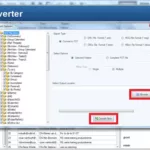
Employee vs. Independent Contractor: What Are the Differences?
Did you know that in the United States, there are 36,310 general contractors employed?
You might think you know the difference between an employee and an independent contractor. But the law shows that companies cross those lines more often than you think.
There are many legal distinctions between employees and independent contractors. This article will give you a guide to employee vs. independent contractor differences.
Defining an Employee
An employee is an individual who performs services for an employer. An employee is under the employer’s control. An employer may control an employee’s work and how it’s done.
They’re given a set schedule and agreed-upon pay.
Defining an Independent Contractor
An independent contractor is an individual that provides services to another business. An independent contractor is not an employee of the company they provide services to. They’re under the terms specified in a contract.
They are typically not given a set schedule and are paid per project.
Differences in Legal Responsibilities
There are differences in the legal responsibilities of an employee versus an independent contractor. For employees, employers are legally responsible for things like workplace safety. Ensuring fair wages and hours and providing a reasonable work schedule.
Employees are covered by the rules and regulations of their company. If an employee is injured on the job, the company handles their medical expenses. Lost wages are also included.
Independent contractors are not afforded the same legal protections. They are typically responsible for their safety and set their hours. They are not entitled to the same minimum wage and overtime protections as employees.
There are some benefits to being an independent contractor. But it needs to be essential to be aware of the increased risk and lack of protection.
Differences in Tax implications
Employees typically withhold taxes from their paychecks. Independent contractors are responsible for paying their taxes. Independent contractors are also not eligible for employee benefits.
Independent contractors are not protected by many of the same labor laws. This includes minimum wage and overtime laws. They are also not entitled to unemployment benefits if they lose their job.
Differences in Work Schedule
There are several differences between employees and independent contractors in their work schedules. Employees are typically given a plan by their employer. Independent contractors generally have more flexibility when setting their work schedules.
Employees may be required to work overtime. Independent contractors are not typically subject to the same rules.
Employees are usually more closely supervised by their employer than contractors are. This can be a good or bad thing, depending on the person’s working style.
Differences in Personal Liability
Regarding personal liability, there are some differences between employees and independent contractors. Employees are generally liable for any injuries that occur while they are working.
Independent contractors are usually only liable for their actions. They are not protected by their employer similarly. If they were to cause any injury while working, they would be responsible for it themselves.
If you want to know more about employees and independent contractors, visit the Chamber of Business. They can also help you with everything you need to know about business.
Difference in Salary
An employee typically receives a regular paycheck from their employer. An independent contractor is paid directly by the client they work for.
It means that an employee is more likely to have a steady income. An independent contractor’s income can fluctuate depending on the work they can get.
An employee usually has greater job security. They can’t be fired at any time. An independent contractor can only have their contract terminated.
Difference in Company Benefits
An employee is given more company benefits than an independent contractor. Independent contractors give the same benefits as employees, but are not guaranteed. Independent contractors are not eligible for unemployment benefits if they are laid off.
Employees are covered by their employer’s insurance, while independent contractors are not. This can be a big difference, especially if the contractor is working in a risky field.
Difference in Company Rules
Employees are bound by the rules and regulations of their employers. This means that independent contractors are not subject to the same restrictions on their work hours, schedules, or job duties as employees.
They also are not required to follow the same dress code and may not require to abide by the same code of conduct. Furthermore, employees may require to sign non-compete or confidentiality agreements, while independent contractors are not.
Difference in Contracts
There’s a difference between hiring an employee and an independent contractor. An employee has a contract with their employer that outlines their duties, compensation, and other terms of employment.
An independent contractor has a contract with their client that outlines the scope of work, compensation, and other terms of the relationship.
The independent contractor is not an employee of the company they are contracting with and is not subject to the company’s policies and procedures.
Difference in Company Position
An employee is someone who follows while an independent contractor is someone who works for themselves. They are in control of their own work and how they do it.
The company they work for may give them some guidelines, but they ultimately have the freedom to do the work as they see fit.
Another difference is the level of commitment that each has to the company. An employee is typically committed to the company for a long period of time. They may have a contract that stipulates how long they will work for the company.
An independent contractor is usually only committed to the company for the duration of the project they are working on. Once the project is complete, they are free to move on to another company or client.
Knowing the Difference Between Employee vs. Independent Contractor
To classify your workers correctly, an employer must understand the differences between employee vs. independent contractor.
You may be subject to penalties and fines if you misclassify your workers. It is necessary to classify workers to avoid any penalties or fines precisely.
Need more information, tips, and advice? Keep browsing our blog to find them. We have different blogs you can choose from.















